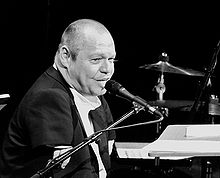The Berlin Philharmonic is a German orchestra based in Berlin. It is one of the most popular, acclaimed and well-respected orchestras in the world.

Evgeny Igorevich Kissin is a Russian-born concert pianist and composer. He became a British citizen in 2002 and an Israeli citizen in 2013. He first came to international fame as a child prodigy. He has a wide repertoire and is especially known for his interpretations of the works of the Romantic era, particularly those of Franz Schubert, Frédéric Chopin, Robert Schumann, Franz Liszt, Johannes Brahms, Sergei Rachmaninoff, Modest Mussorgsky and Ludwig van Beethoven. He is commonly viewed as a great successor of the Russian piano school because of the depth, lyricism and poetic quality of his interpretations.

Dietrich Fischer-Dieskau was a German lyric baritone and conductor of classical music. One of the most famous Lieder performers of the post-war period, he is best known as a singer of Franz Schubert's Lieder, particularly "Winterreise" of which his recordings with accompanists Gerald Moore and Jörg Demus are still critically acclaimed half a century after their release.

Kathleen Deanna Battle is an American operatic soprano known for her distinctive vocal range and tone. Born in Portsmouth, Ohio, Battle initially became known for her work within the concert repertoire through performances with major orchestras during the early and mid-1970s. She made her opera debut in 1975. Battle expanded her repertoire into lyric soprano and coloratura soprano roles during the 1980s and early 1990s, until her eventual dismissal from the Metropolitan Opera in 1994. She later has focused on recording and the concert stage. After a 22-year absence from the Met, Battle performed a concert of spirituals at the Metropolitan Opera House in November 2016, and again in May 2024.
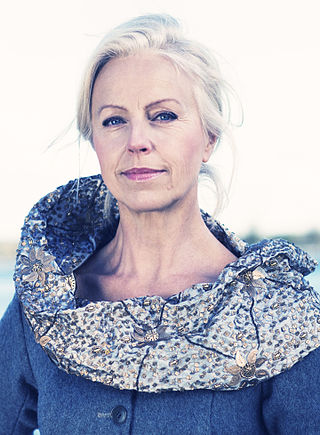
Anne Sofie von Otter is a Swedish mezzo-soprano. Her repertoire encompasses lieder, operas, oratorios and also rock and pop songs.

Peter Schreier was a German tenor in opera, concert and lied, and a conductor. He was regarded as one of the leading lyric tenors of the 20th century.
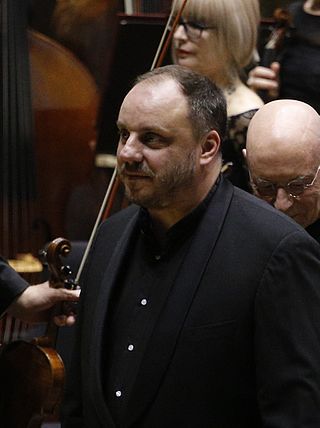
Matthias Goerne is a German baritone. He has performed and recorded extensively, both on the opera stage and in Lieder settings. Goerne has been referred to as "Today's leading interpreter of German art songs" by the Chicago Tribune, while the Boston Globe describes him as "one of the greatest singers performing today".
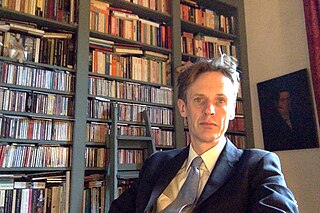
Ian Charles Bostridge CBE is an English tenor, well known for his performances as an opera and lieder singer.

Albrecht Mayer is a German classical oboist and conductor. The principal oboist of the Berlin Philharmonic, he is internationally known as a soloist and chamber musician and has made many recordings.
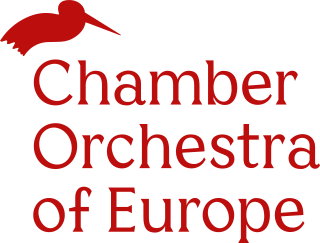
The Chamber Orchestra of Europe (COE), established in 1981, is an orchestra based in London. The orchestra comprises about 60 members from across Europe. The players pursue parallel careers as international soloists, members of chamber groups and as tutors and teachers of music. The orchestra receives substantial support from the Gatsby Charitable Foundation and the Underwood Trust; they have no single home resident hall and no appointed resident conductor. The orchestra is a registered charity under English law.
The Arnold Schoenberg Choir is a Viennese/Austrian choir which was founded 1972 by Erwin Ortner, who is still its artistic director. The choir has a high reputation both among conductors and among critics and the musical scene in general. All members of the choir have broad experience and expertise in vocal music; most of them have graduated from or are currently studying at the Vienna University of Music and Performing Arts. The choir is named after Viennese composer Arnold Schoenberg.
Dorothea Röschmann is a German soprano. She is famous for her performances in operas by Mozart as well as Lieder.
"Prometheus", D. 674, is an intensely dramatic art song composed by Franz Schubert in October 1819 to a poem of the same name by Johann Wolfgang von Goethe.

Antônio Jeronimo de Meneses Neto was a Brazilian cellist and an academic teacher based in Switzerland. Known professionally as Antônio Meneses, he won the first prize and gold medal at the 1982 International Tchaikovsky Competition in Moscow. He was the cellist of the Beaux Arts Trio from 1998 to 2008.
Klaus Mertens is a German bass and bass-baritone singer who is known especially for his interpretation of the complete works of Johann Sebastian Bach for bass voice.

Nathan Berg is an operatic bass-baritone. He is a Grammy Award winner, and four-time Grammy nominated, a Juno award winner and 2014 Juno Awards nominee

The Jazz Album: Watch What Happens is a 2006 studio album by the German baritone Thomas Quasthoff. The album was arranged by Alan Broadbent, Steve Gray, and Nan Schwartz.
Daniel Behle is a German classical composer and operatic tenor. He has performed at international opera houses and festivals, and has recorded both operas and Lieder recitals.

Benedikt Kristjánsson is an Icelandic operatic and concert tenor who is based in Germany and has appeared internationally. He focuses on Baroque music, especially by Johann Sebastian Bach, but has also performed and recorded Romantic lieder and contemporary music. He has performed Bach's St John Passion in an arrangement for one singer, keyboard and percussion, notably in a live broadcast from Bach's resting place at the Thomaskirche on Good Friday 2020.
Rainer Trost is a German tenor whose performance repertoire encompasses operas, operettas, Lieder and oratorios. He is known for roles in Mozart operas. He is also a voice teacher at the University of Music and Performing Arts Vienna.
